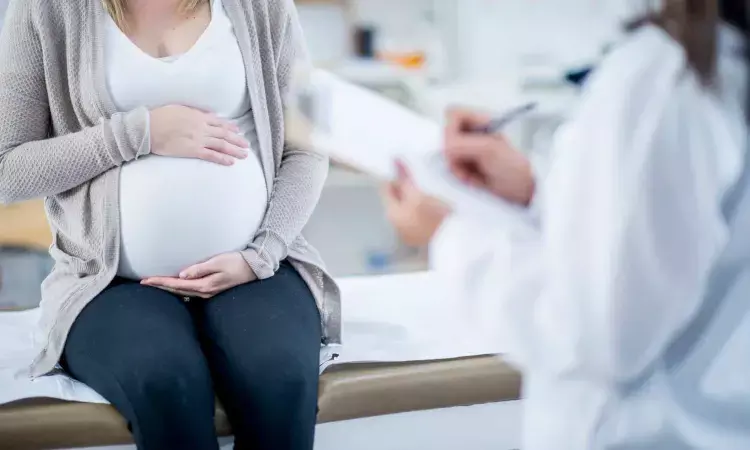- Home
- Medical news & Guidelines
- Anesthesiology
- Cardiology and CTVS
- Critical Care
- Dentistry
- Dermatology
- Diabetes and Endocrinology
- ENT
- Gastroenterology
- Medicine
- Nephrology
- Neurology
- Obstretics-Gynaecology
- Oncology
- Ophthalmology
- Orthopaedics
- Pediatrics-Neonatology
- Psychiatry
- Pulmonology
- Radiology
- Surgery
- Urology
- Laboratory Medicine
- Diet
- Nursing
- Paramedical
- Physiotherapy
- Health news
- Fact Check
- Bone Health Fact Check
- Brain Health Fact Check
- Cancer Related Fact Check
- Child Care Fact Check
- Dental and oral health fact check
- Diabetes and metabolic health fact check
- Diet and Nutrition Fact Check
- Eye and ENT Care Fact Check
- Fitness fact check
- Gut health fact check
- Heart health fact check
- Kidney health fact check
- Medical education fact check
- Men's health fact check
- Respiratory fact check
- Skin and hair care fact check
- Vaccine and Immunization fact check
- Women's health fact check
- AYUSH
- State News
- Andaman and Nicobar Islands
- Andhra Pradesh
- Arunachal Pradesh
- Assam
- Bihar
- Chandigarh
- Chattisgarh
- Dadra and Nagar Haveli
- Daman and Diu
- Delhi
- Goa
- Gujarat
- Haryana
- Himachal Pradesh
- Jammu & Kashmir
- Jharkhand
- Karnataka
- Kerala
- Ladakh
- Lakshadweep
- Madhya Pradesh
- Maharashtra
- Manipur
- Meghalaya
- Mizoram
- Nagaland
- Odisha
- Puducherry
- Punjab
- Rajasthan
- Sikkim
- Tamil Nadu
- Telangana
- Tripura
- Uttar Pradesh
- Uttrakhand
- West Bengal
- Medical Education
- Industry
Novel MRI method provides detailed view of the placenta during pregnancy

Researchers have developed a new method to process MRI scans to reveal the distinct compartments of the placenta, take measurements of oxygen levels in each region and determine if there are malformations in blood vessels (i.e., placental lesions). At present this level of detail is currently not possible to obtain using standard MRI analysis methods.
The study team, led by Yong Wang, Ph.D., at Washington University in St. Louis and Alison Cahill, M.D., at the University of Texas at Austin, developed analysis methods for MRI scans that are routinely collected in hospitals and healthcare facilities. Importantly, these types of MRI scans do not require contrast agents, which are only used during pregnancy for limited circumstances.
The team’s machine learning method automatically processes MRI data to visualize separate placental compartments, including the intervillous space (the area where maternal blood enters to provide nutrients and gas exchange), placental vessels and placental tissue. Unlike current MRI analysis methods, which can only measure placental oxygen as an average across the entire organ, the new method can characterize oxygen levels within these discrete compartments.
The study team also used these region-specific measurements to look for differences between 22 study participants with healthy pregnancies and five participants who went on to develop pregnancy complications. While they did observe trends-highlighting the potential for this technique to detect specific pregnancy complications-further analysis is needed among larger groups of study participants.
Overall, the new method can serve as an objective, quantitative method to assess placental health during pregnancy. With additional validation and refinement of this technique, the method may be used by healthcare providers as a tool in the care of pregnant patients, especially those at risk for pregnancy complications. Early monitoring of the placenta can lead to better detection and prevention of pregnancy complications, including preterm birth, fetal growth disorders and preeclampsia.
Reference:
Sun Z., et. al. Association of intraplacental oxygenation patterns on dual-contrast MRI with placental abnormality and fetal brain oxygenation. Ultrasound in Obstetrics & Gynecology DOI: 10.1002/uog.24959 (2023)
Dr Kamal Kant Kohli-MBBS, DTCD- a chest specialist with more than 30 years of practice and a flair for writing clinical articles, Dr Kamal Kant Kohli joined Medical Dialogues as a Chief Editor of Medical News. Besides writing articles, as an editor, he proofreads and verifies all the medical content published on Medical Dialogues including those coming from journals, studies,medical conferences,guidelines etc. Email: drkohli@medicaldialogues.in. Contact no. 011-43720751


